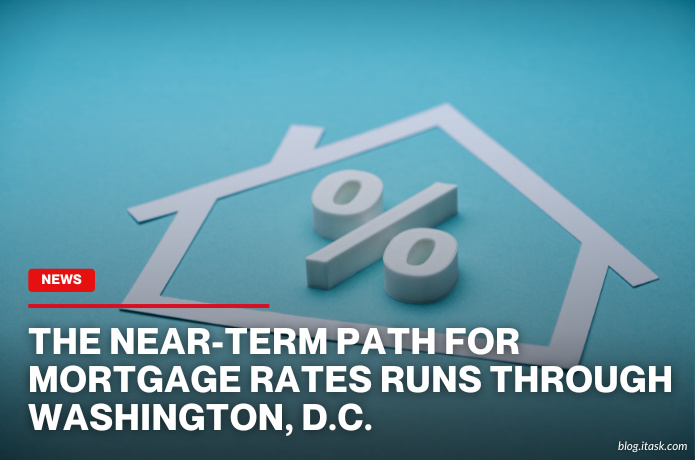The near-term path for mortgage rates runs through Washington, D.C.
The near-term path for mortgage rates runs through Washington, D.C.

Mortgage rates in Canada are increasingly influenced by decisions made in Washington, D.C., as U.S. economic policies and Federal Reserve actions ripple across borders. The Federal Reserve's cautious approach to interest rate cuts, prompted by persistent inflation and economic uncertainties, suggests that Canadian mortgage rates may remain elevated in the near term.
President Donald Trump's recent implementation of sweeping tariffs, including a 10% levy on all imports and higher rates on goods from about 60 countries, has introduced further economic volatility. While these tariffs are primarily a U.S. policy, their global economic impact can indirectly affect Canadian markets, potentially leading to fluctuations in mortgage rates as investors react to increased uncertainty.
The U.S. housing market is already experiencing the effects of these economic shifts, with high mortgage rates and construction costs deterring homebuyers and slowing down construction activity. This slowdown south of the border can influence Canadian housing markets, as reduced demand for materials and labor may affect pricing and availability in Canada.
For Canadian homebuyers and homeowners, this means that mortgage rates are likely to stay higher for longer, making borrowing more expensive. Those considering purchasing a home or refinancing should be prepared for these elevated rates and plan their finances accordingly.
Experts advise that, given the current economic climate, decisions about buying or selling a home should be based on personal financial readiness rather than attempting to time the market. The unpredictability of global economic policies and their cascading effects make it challenging to forecast exact movements in mortgage rates.
In summary, while Canadian mortgage rates are determined domestically, they are not insulated from international economic developments. The interplay between U.S. policy decisions, global market reactions, and domestic economic conditions will continue to shape the mortgage landscape in Canada in the near future.
